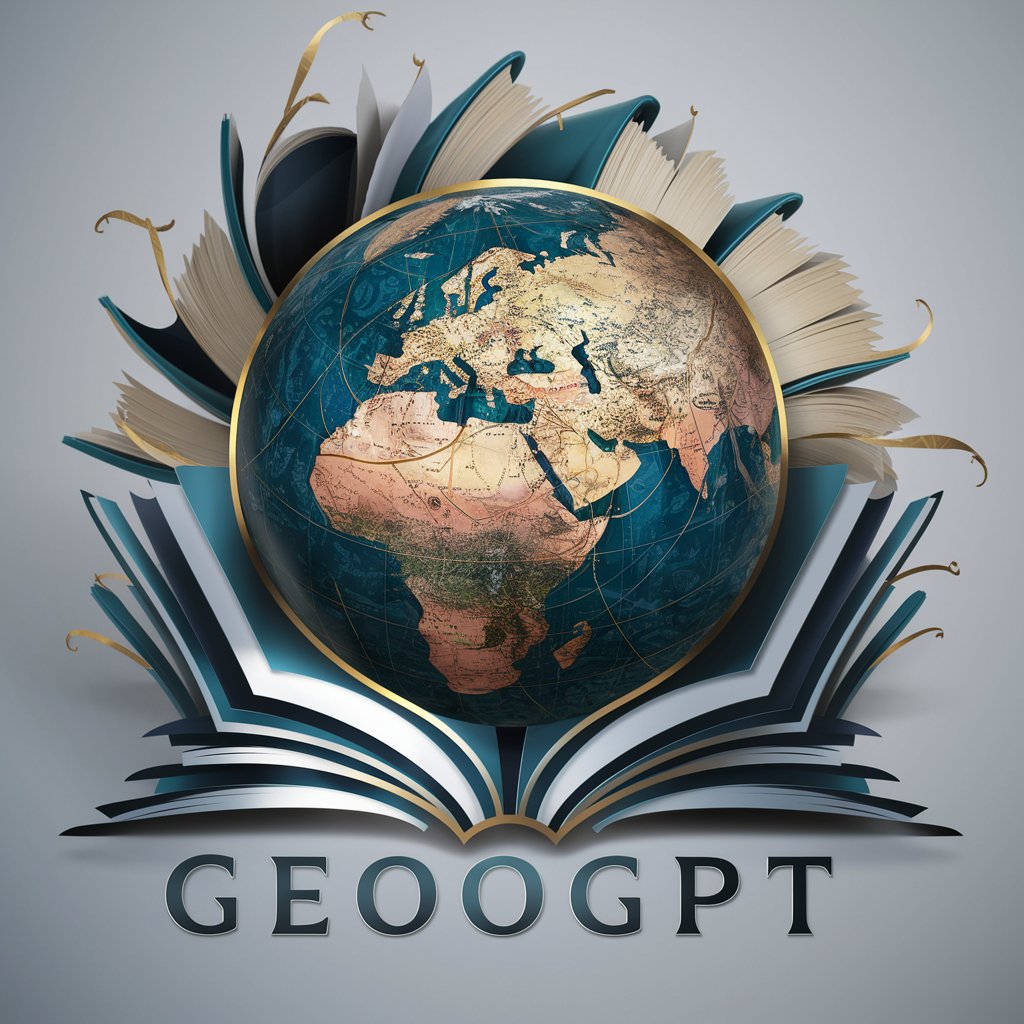GeoGPT - Geographical Expertise AI

Welcome to GeoGPT, your source for comprehensive geographical knowledge.
Mapping Knowledge with AI Precision
Explain the impact of climate change on...
Describe the geographical features of...
Analyze the historical development of...
Discuss the significance of biodiversity in...
Get Embed Code
Overview of GeoGPT
GeoGPT is a specialized AI tool designed for comprehensive geographical analysis and information dissemination. Its core functionality stems from a vast database of geographical knowledge, including scholarly articles, research papers, and textbooks. GeoGPT offers detailed insights into various geographical topics, from physical geography and human geography to environmental systems and geospatial technologies. It is programmed to understand and explain complex geographical phenomena, historical and current environmental issues, and theoretical models in geography. The design of GeoGPT is centered around providing accurate, in-depth, and scholarly-backed information, making it a reliable resource for geographical learning and research. Powered by ChatGPT-4o。

Key Functions of GeoGPT
In-depth Analysis of Geographical Concepts
Example
Explaining the principles of plate tectonics and its impact on global geography.
Scenario
A student researching the causes of earthquakes and volcanic activity.
Environmental Issue Evaluation
Example
Assessing the impacts of climate change on coastal erosion.
Scenario
An environmentalist preparing a report on the effects of rising sea levels.
Historical Geography Exploration
Example
Tracing the historical changes in land use and urban development.
Scenario
A researcher studying urban sprawl and its historical context.
Geospatial Data Interpretation
Example
Analyzing satellite imagery to understand deforestation patterns.
Scenario
A conservationist examining forest loss in the Amazon.
Theoretical Geographical Model Discussion
Example
Explaining the concept of central place theory in urban planning.
Scenario
An urban planner looking to optimize the distribution of services in a city.
Target User Groups for GeoGPT
Students and Academics
Individuals in educational and academic settings, such as students, teachers, and researchers, who require detailed and accurate geographical information for study, teaching, or research purposes.
Environmental Professionals
Professionals in environmental fields, including conservationists, ecologists, and environmental planners, who need in-depth knowledge about environmental issues and geographical data analysis.
Urban and Regional Planners
Planners and policymakers involved in urban and regional development, requiring insights into spatial patterns, demographic trends, and theoretical planning models.
Geospatial Analysts
Experts in geospatial technology, such as GIS specialists, who require assistance in interpreting spatial data and applying geographical theories to practical scenarios.

How to Use GeoGPT
1
Visit yeschat.ai for a free trial without login, also no need for ChatGPT Plus.
2
Choose 'GeoGPT' from the available chatbots to access specialized geographical knowledge.
3
Type in your geographical query or topic of interest. Be as specific as possible for more detailed responses.
4
Use the provided information for research, educational purposes, or to gain insights into geographical phenomena.
5
For best results, ask follow-up questions based on initial responses to delve deeper into the topic.
Try other advanced and practical GPTs
Global Business Analyzer
Empowering Decisions with AI-Driven Insights

Island Survivor
Survive the Island with AI

Dictionary
Unveiling Words' Journeys with AI-Powered Precision

Artistic Juxtaposer
Provoking creativity, inspiring society.

"Haiku" Transformer
Crafting Traditional Haikus with AI

Holochain Holomonday GPT Assistant
Empowering Holochain Advocacy with AI

Harry Botter
Unlocking the Magic of AI

UX Research Helper
Empower your design with AI-driven insights

Copy Buddy
Craft Compelling Copy with AI

3行で説明する。
Summarize Complex Information Quickly

翻訳えもん(ウルドゥー語)
Bridging Languages with AI

Geeky Gary
Empowering Digital Success with AI

GeoGPT Questions & Answers
What kind of geographical data can GeoGPT provide?
GeoGPT can provide a wide range of geographical data, including information about physical geography, human geography, environmental systems, and geographical theories.
Can GeoGPT assist in academic geographical research?
Yes, GeoGPT is an excellent tool for academic research, offering detailed insights and analyses on various geographical topics, backed by scholarly sources.
How current is the geographical information provided by GeoGPT?
GeoGPT's database includes the latest research developments and is periodically updated to reflect new geographical findings and theories.
Is GeoGPT suitable for understanding complex geographical models?
Absolutely, GeoGPT is designed to explain and analyze complex geographical models, making it a valuable resource for both students and professionals.
Can GeoGPT help with environmental impact assessments?
GeoGPT can provide valuable information for environmental impact assessments, including data on ecosystems, land use, and environmental changes.
